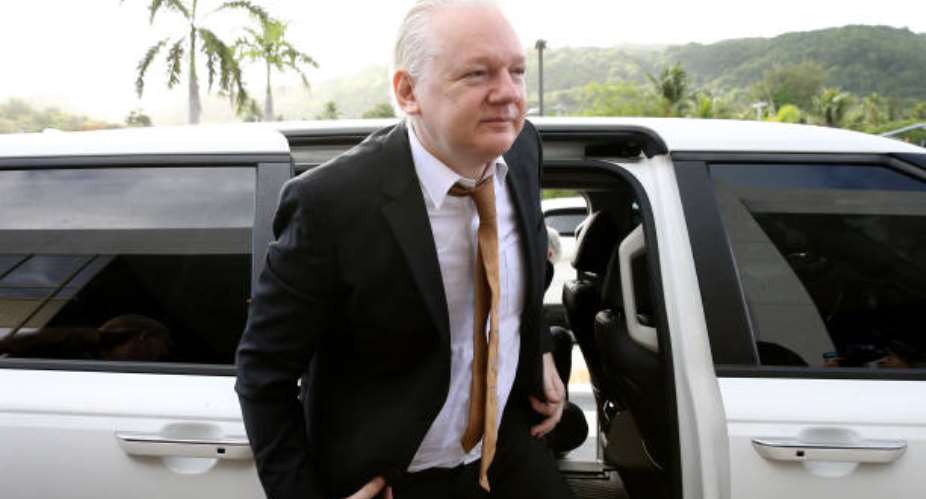Julian Assange, the founder of WikiLeaks, has been a polarizing figure in the world of journalism and beyond. His recent release from a UK prison, following a plea bargain with the US Justice Department, marks the end of a 14-year saga that has captivated and divided public opinion. As journalists, there are crucial lessons to be learned from Assange’s case and career that can guide our practices and ethical considerations moving forward.
The Power and Perils of Whistleblowing
Assange’s work with WikiLeaks underscored the immense power that whistleblowing holds in unveiling government and corporate malfeasance. The publication of classified documents related to the Iraq and Afghanistan wars, among others, highlighted abuses of power and sparked global debates on transparency and accountability. For journalists, this underscores the importance of supporting and protecting whistleblowers who provide critical information that serves the public interest. However, it also highlights the potential perils, as whistleblowers and those who publish their information can face severe legal and personal repercussions.
Ethics of Information Dissemination
The indiscriminate release of vast amounts of classified information by WikiLeaks raised significant ethical questions. While transparency is a cornerstone of journalism, it must be balanced with considerations of potential harm. Journalists must navigate the delicate line between exposing wrongdoing and protecting innocent lives. Assange’s case serves as a reminder that the ethical responsibility of journalists is not just to uncover the truth but to do so in a manner that minimizes harm and upholds the dignity of all involved.
Digital Security and Surveillance
Assange’s arrest and prolonged incarceration were significantly tied to the digital nature of his work. His case illustrates the increasing surveillance capabilities of governments and the associated risks for journalists operating in the digital age. To protect sources and their own safety, journalists must prioritize digital security measures. Understanding encryption, secure communication channels, and the legal implications of digital data handling are now essential skills for modern journalists.
Legal Risks and Protections
Assange’s legal battles highlight the complex and often precarious relationship between journalism and the law. The charges brought against him, particularly under the Espionage Act, have implications for press freedom. Journalists must be aware of the legal risks associated with their work, especially when dealing with sensitive information. Advocacy for stronger legal protections for journalists and clearer distinctions between legitimate journalism and illegal activities is essential to safeguard press freedom.
The Global Nature of Journalism
Assange’s international saga, involving multiple countries and legal systems, underscores the global nature of modern journalism. Stories and their implications often transcend national borders, and journalists must be prepared to navigate the complexities of international law and diplomacy. Building networks of support and collaboration with international peers and organizations can provide vital assistance and protection in a globalized media landscape.
Public Perception and Media Trust
The mixed public perception of Assange, seen by some as a hero and others as a villain, illustrates the challenges journalists face in maintaining public trust. It is crucial for journalists to be transparent about their methods and motivations and to engage with their audiences to build and maintain credibility. In an era of rampant misinformation, the integrity and trustworthiness of journalists are more important than ever.
Conclusion
Julian Assange’s case is a landmark in the history of journalism, offering valuable lessons for the profession. As we reflect on his career and the consequences he faced, journalists must strive to balance transparency with responsibility, protect their sources, and remain vigilant against legal and digital threats. In doing so, we can uphold the principles of journalism while adapting to the challenges of the modern world. The path forward is fraught with challenges, but by learning from Assange's experiences, journalists can better navigate the complex landscape of whistleblowing, digital security, and press freedom.





 Ex-gratia hasn’t served its purpose, let’s scrap it – Speaker Bagbin
Ex-gratia hasn’t served its purpose, let’s scrap it – Speaker Bagbin
 Free SHS Bill: SHS to be extended from 3 to 6 years
Free SHS Bill: SHS to be extended from 3 to 6 years
 Accra Mall’s Chicken Inn Manager jailed 5years for stealing GHC19,904
Accra Mall’s Chicken Inn Manager jailed 5years for stealing GHC19,904
 Bawumia to present Napo as Running Mate to NPP National Council on Thursday
Bawumia to present Napo as Running Mate to NPP National Council on Thursday
 Dangote, Supacem, Ghacem, Diamond Cement, CIMAF, other cement manufacturers boyc...
Dangote, Supacem, Ghacem, Diamond Cement, CIMAF, other cement manufacturers boyc...
 Inflation drops to 23.1% as fiscal and monetary policies take effect
Inflation drops to 23.1% as fiscal and monetary policies take effect
![Finance Minister Dr. Mohammed Amin Adam[left] and Founding President of IMANI Africa, Franklin Cudjoe](https://cdn.modernghana.com/content__/84/56/71202472609-m6itl8w331-img6642.jpeg) Finance Minister Amin Adam has been impressive so far — Franklin Cudjoe
Finance Minister Amin Adam has been impressive so far — Franklin Cudjoe
![Dr. Henry Kwabena Kokofu [File Photo]](https://cdn.modernghana.com/content__/84/56/71202465602-wbreuihuto-c21d3a27-e71e-4770-ac3d-fa06f0d31295.jpeg) 2024 election: Henry Kwabena Kokofu rallies support for Bawumia-Napo ticket
2024 election: Henry Kwabena Kokofu rallies support for Bawumia-Napo ticket
 Alleged lavish Miami trip: Sammy Gyamfi sues Asaase Radio, Wilberforce Asare, tw...
Alleged lavish Miami trip: Sammy Gyamfi sues Asaase Radio, Wilberforce Asare, tw...
